 Have you taken a look at the news lately? There is not a single facet of our society which is not currently undergoing dramatic change. Evidence of widespread fraud in the United States election keeps surfacing. Governments continue to implement restrictions on our fundamental liberties, like freedom of movement and assembly. Tech companies are playing the roles of arbiters of truth. Protests and demonstrations are sparking around the globe; Washington DC, Manchester and Berlin to name a few. In Hong Kong, a group of pro-democracy legislators resigned in mass over the latest Beijing power grab, the first time this has ever happened.
Have you taken a look at the news lately? There is not a single facet of our society which is not currently undergoing dramatic change. Evidence of widespread fraud in the United States election keeps surfacing. Governments continue to implement restrictions on our fundamental liberties, like freedom of movement and assembly. Tech companies are playing the roles of arbiters of truth. Protests and demonstrations are sparking around the globe; Washington DC, Manchester and Berlin to name a few. In Hong Kong, a group of pro-democracy legislators resigned in mass over the latest Beijing power grab, the first time this has ever happened.
And as we are living in the chaos, life marches on, unabated. We still have jobs to do, bills to pay, food to cook, clothes to wash, children to tend to, dogs and cats to feed (not me, but others). For all our work to bring order into our tiny, individual slices of the universe, it seems that chaos manages to slip in through the cracks of our meticulously crafted façade.
Order and chaos, the timeless dance of these two universal qualities is becoming ever fiercer in our civilization. And we’re caught in the middle of it all, trying to make sense of things.
We Thrive In Chaos
This is good. Because we humans have evolved to thrive in chaos. We were born from chaos, we are equipped, mentally, physically and spiritually, to convert chaos into order through the implementation of our will. Only by doing so do we reach for our potential.
Chaos is our jam.
This article will argue that it’s only by accepting chaos, embracing it as a fundamental aspect of the universe, that we can grow into our the greatest versions of ourselves. Chaos can be scary, I agree. But oftentimes the tiniest shift in our perception can allow us to turn adversity into opportunity.
I aim to help shift your perception of chaos.
Order And Chaos – They’re Everything And Everywhere
In a previous article I wrote about the duality of human experience: light and dark, life and death, good and evil. These distinctions aren’t qualities of the universe, but creations of the human mind. The human mind separates and categorizes the universe, fragmenting unity into various parts so we can deal with it.
As long as we have minds we exist in duality. We can’t have one without the other, no light without dark. Opposing, complimentary forces exist in a permanent state of tension, a dance, from which are born all the forms we love and fear. When we deny one force, we deny the other and thus throw sand in the gears of our personal evolution. But the sand only slows down the process and hurts us, yet it does not stop it.
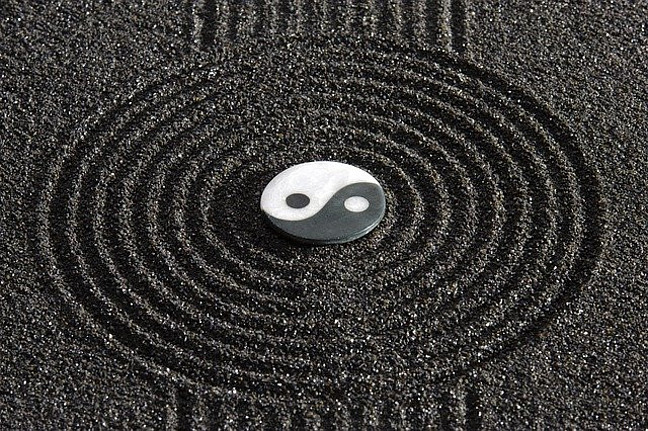
So what are order and chaos. Simply, order is predictability. Chaos is unpredictability. We can observe the behavior of an ordered system and based on this predict where and how it will be at a future time, like the cycle of the seasons, solar and lunar eclipses, the ocean tides and the ending of M. Night Shyamalan movies. We cannot do this for chaotic systems, examples of which are: the weather, the stock market, politics and the act of plugging in a USB drive. Will it fit or not? You never know!
Throughout history our species has endeavored to bring order to chaos. Firstly, we emerged from chaos, our blueprint molecules cooking and jostling against each other in the primordial soup of a young earth, 3.8 billion years ago. From this chaos we stepped out, and thrived; we brought human order to a chaotic world and spread across the plains, desserts, mountains and islands.
Farming: Order To The Land!
Then, around 10,000 years ago we started farming; we began to clear land from chaotic vegetation (chaotic to us, but ordered according to nature) in order to sow our ordered crops. Here began the first priestly classes who went on to found religions which aimed to bring order to the chaos of the universe through ritual and dogma.
Then, with the scientific method we commenced a rigorous explanation of the underlying mechanisms dictating the movements of the planets, stars and the cycle of seasons, based on observation and experimentation. Science replaced religion as the storyteller of the universe. And just like religion had its priestly classes, so does science today. That is where we are at present.
These are, of course, just a few examples of the infinite, eternal, dynamic balance found between order and chaos. There are countless others; revolutions in systems of government, art, culture; they are our personal and collective stories of chaotic order and ordered chaos.
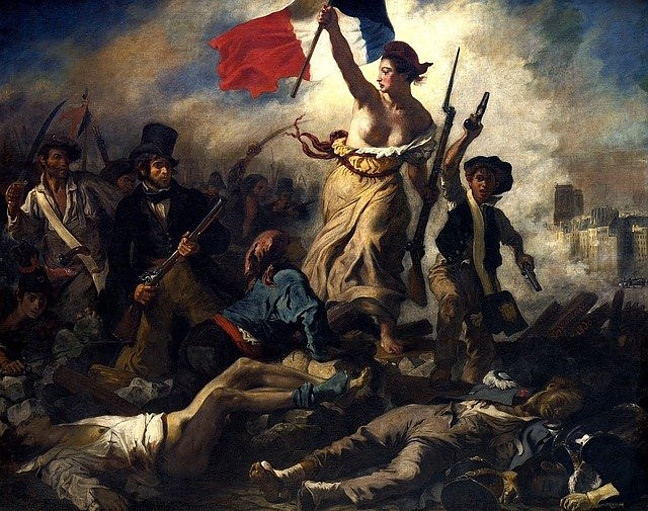
We Come From A Revolutionary Past
As I write about these periods of transition it could seem as though they occurred harmoniously.
That’s not how it happened. Each of these revolutions demanded a harrowing encounter with chaos; wars were fought, people died, in the millions in some cases. Will that happen this time around? Who can say? My money is on no, I believe people are ready for peace.
Any upheaval of a system of the world eventually brings something new, updated and more accurate. Something more in line with the freedom of our spirit; the arc of history bends toward peace.
So we go from chaos to order to chaos to order and to chaos again; spirals within spirals of tension, of change. The unknown is ever encroaching upon what we know, or feel to know.
There is no way to isolate ourselves from this. Nor would we want to, for isolation leads only to stagnation and death.
No, isolation is not an option. We either accept the dance of order and chaos as an unalterable price to being a human being, or we stagnate.
The Choice Is Clear
We must embrace chaos. It is the only way forward. The world has changed, in what seemed to be the blink of an eye. Freedoms which we took for granted are now being considered optional, in the name of our security. But freedom is won only through tremendous strife and can be lost in an instant, if we’re not careful.
It is up to us to protect our freedoms, no one will do it for us. We must speak up now or accept the consequences of our silence later on. We can only speak up if we accept the chaos into our lives, if we admit it’s there, that it’s staring straight at us, and that it won’t go away until we face it down. It can be scary, admitting chaos in, but that’s the price we must pay for freedom.
What matters now is how we respond to the chaos which is poised so elegantly at our throats. We can choose to complain, to worry and stress about what was lost, to give in to fear; or we can choose to learn, to wield our human superpowers to bring order to chaos, to love in the face of disruption. One of these choices leads to growth, the other, to stagnation. It’s up to each of us to choose.
We are human. This is what we’re made for, this is what we came from. We got this.
We Thrive At The Boundary Of Order And Chaos
Imagine for a moment a tightrope walker. Imagine this person balanced on a rope a quarter of an inch thick, poised above a precipitous fall. The tightrope is strung so high up, between the known and the unknown, that the bottom
of the precipice is shrouded in blackness. The walker has no idea what lies below.
As this walker walks the rope she must maintain her balance if she is to make it to the other side. What lies at the other side? Who knows, pancakes, maybe. What is certain is that the walker will have to remain balanced if she is to get there.
How does she remain balanced? Does she command her upper body to remain completely stiff, frozen in a single configuration, as she puts one foot in front of the other?
No, if she did that she would fall immediately.
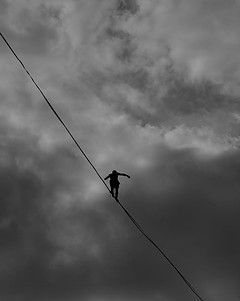 What she does instead is make tiny, almost imperceptible changes to her physical configuration. A tilt to the head there, a tiny shift in her arms’ position here, a small swerve in the waist there; the tightrope walker maintains her body in a state of relaxed tension, as she walks the balance. Her mind is silent, focused on the single point of balance, while simultaneously coordinating the symphony of adjustments which allow her to remain equilibrated on the rope.
What she does instead is make tiny, almost imperceptible changes to her physical configuration. A tilt to the head there, a tiny shift in her arms’ position here, a small swerve in the waist there; the tightrope walker maintains her body in a state of relaxed tension, as she walks the balance. Her mind is silent, focused on the single point of balance, while simultaneously coordinating the symphony of adjustments which allow her to remain equilibrated on the rope.
She doesn’t think about this consciously, if she did she would muck up her flow of adjustments and end up falling. No, she is just relaxed enough to allow her instincts to guide her and just alert enough to remain focused on her task.
She is balanced between order and chaos. This is where she grows her skill as a tightrope walker. This is where she’s at her peak.
Take A Page From Lao Tzu’s Book
It brings to mind this poem by Lao Tzu:
Men are born soft and supple;
dead, they are stiff and hard.
Plants are born tender and pliant;
dead, they are brittle and dry.
Thus whoever is stiff and inflexible
is a disciple of death.
Whoever is soft and yielding
is a disciple of life.
The hard and stiff will be broken.
The soft and supple will prevail.
“The hard and stiff will be broken. The soft and supple will prevail.” Being soft and supple, flexible, means being alive. The softer, more supple and flexible, the more alive we are.
The metaphor of the tightrope walker might seem like it has no bearing in most of our lives. After all, few of us walk tightropes on a daily basis. But we are all poised on the balance of order and chaos every moment of our lives.
Because we’re all living beings. And that’s what living beings do.
Our bodies and brains are never fully at rest. They are in constant communication (unified, even) with themselves and with our environment. Any change in the environment is picked up by our senses and interpreted by our subconscious mind, informing us about how should react or respond to it. It follows that the more sensitive we are to our environment, the more unified we are with it and the more we flow with the ever-changing universal currents.
For example, our brains and body’s sense the temperature moment by moment. Every instant they act in harmony to maintain our balmy inner temperature between 37 and 38 degrees Celsius. Whenever our temperature falls or rises above that temperature for too long it is a symptom that we are sick. Chaos has wedged its way in.
But we can handle it!
Our Bodies Are Constantly Balancing
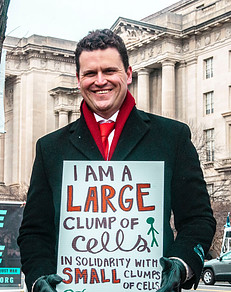
Like the tightrope walker, our brains and bodies are in a constant, infinitesimal adjustment process, to remain in harmony with the outer world. This is called homeostasis. It’s built into us. Our bodies are made up of trillions of individual cells (between 30 and 40 trillion), each one of them acting independently, metabolizing, excreting, replicating, yet communicating with and serving the whole of the organism. Can you imagine if each of these cells did whatever it wanted, without alignment to the higher order of the organism? When a group of cells ignores the higher order of the organism, its called cancer.
We all turn chaos into order, otherwise we wouldn’t be alive. At the same time, we all turn order into chaos, otherwise human behavior would be predictable and boring.
We exist at the border of order and chaos. Being in constant balance. That is where we thrive.
A Common Trait Of Top Performers
All the top performers in any field; business, science, art, share a common trait. They embrace the unknown. In order to shift the paradigm of their fields and create disruptive innovations which add value to the market, they must ceaselessly confront their ignorance and update their mental models with new, more accurate ones (this process never ends). They must wield new tools which allow them to create new things; install new habits which serve them better than old ones.
They do this while simultaneously embracing order in their lives. Habitual routines allow a person to focus on learning and innovating. Being boring in one aspect of life, like going to sleep early and waking up early, allows a person to be exciting in others. Ordering our lives allows us to embrace chaos, this then reorders our lives so we can embrace chaos again, differently. Spirals within spirals. The universal dance played out in our individual lives.
For example, George RR Martin, bestselling author of the “Game of Thrones” series, does all his writing on a DOS machine, using Wordstar 4.0 as his word processing system. Wordstar was released in the late 70s, and was a cutting-edge, mass-produced word processor at the time. Using it, George RR Martin wrote his amazing book series. He liked the tool so much, he continues using it today to write awesome books. Embracing the chaos of the new, establishing order, then allowing new chaos to emerge.
We thrive at the border of order and chaos!
What Happens When We Reject Chaos
Many times we cling to an order which is obsolete, which is no longer complementary to the chaos it has birthed. The more we hold on to this obsolete order, the more energy we must expend to keep things from falling apart, and the more we delay the formation of a new, complementary order.
This brings to mind the words of Buckminster Fuller, a paradigm-shifting architect:
“You never change things by fighting the existing reality. To change something, build a new model that makes the existing model obsolete.”
We hold on to our models (to order) for longer than we need to out of fear. Fear of the unknown, of making a mistake, of losing what we have. All these fears stem from the ultimate fear: the fear of dying.
Yet, life and death are two sides of the same coin. We can’t have one without the other, if we push away one we push away the other. So, why fear death? The more we fear death, the less we live, so by the time death does come for us we have played out the stories of our lives as timid, dim creatures; mere shadows of our brilliance.
Every time we leave home we risk dying by any number of means, car accidents, having a building fall on us, slipping on a banana peel. Does that mean we shouldn’t ever leave our home? According to fear, the answer is yes. Fear is what keeps us tethered to our obsolete order; in so doing it keeps us from fully experiencing life.
But fear doesn’t have the final say. We do.
How Can We Learn To Let Go Of Order And Embrace Chaos
These “soft and supple” traits of a “disciple of life”, as written by Lao Tzu, can be cultivated. We can do so, no matter how old we are, our level of education or our level of health or wealth. There are activities, habits, which we can practice which build this soft suppleness into us. By embracing these habits we become disciples of life.
- Reading
- Learning new things
- Meditating
- Exercising (Six Degree Flow is an excellent tool to cultivate this suppleness)
- Journaling
- Dancing
- Walking
- Meeting new people and conversing with them
- Traveling
These are only some of the habits. Most of them cost very little money! So there’s no excuse to not practice at least some of them regularly. We become our habits, not what we do once in a while. It’s better to meditate 10 minutes a day, every day, than one hour a week, every week.
Basically, anything that helps our health, makes us into disciples of life. A healthy organism is one which is sensitive to change, who’s body and brain can adapt and calibrate themselves to be in harmony with its environment. The healthier we are, the safer we feel when chaos encroaches upon order.
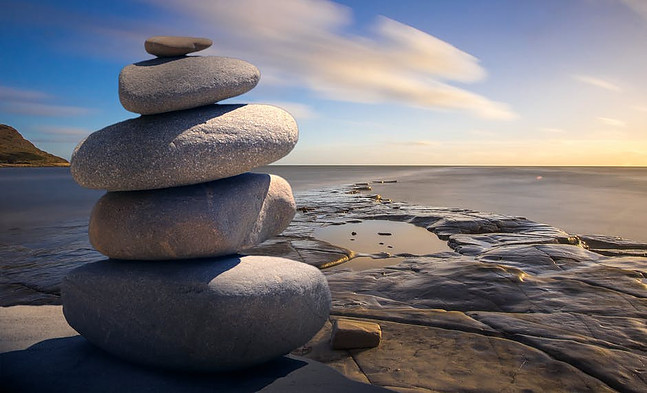
A person who is unhealthy, who’s body and brain have succumbed to the inertia of physical inactivity, mental stiffness and spiritual stagnation, will be terrified of chaos, as a matter of course. Their bodies have been conditioned to exist within a narrow band of comfort, stiffened by the habits of death.
Chaos to such people means death, because their stagnant order is the only thing keeping them alive.
We All Have A Choice
We can be disciples of death, mistreating ourselves with our choices and narrowing our experience of life to a tiny perceptual band. Or we can be disciples of life, treat our bodies, minds and spirits with respect, so they will serve us when chaos eventually comes.
In this way chaos becomes and opportunity to grow, not a thing to be feared. We can adapt to it. By doing so we strengthen our bodies and minds.
As always, it comes down to our choice.
To our wealth and success.
I find this article thought-provoking. There is a lot to digest and think about from here. The main message that I picked up is that we should embrace chaos. I think the idea of embracing chaos to grow does sound scary, though, in your argument, I do see some truths. Humans are basically chaotic in nature. We are always doing something new and that brings change. Those who continue to do the same thing and not willing to change will eventually perish or become obsolete. Change is the new constant as they say. Build new habits to improve ourselves, to grow with the times. But maybe Chaos is too strong a word to be used? I would go for living in a time of change though it may sound more boring.
Thanks for your thoughtful comment, Richard.
I wrote the article as a reflection of the times we’re going through as a civilization, as it shows in the introduction. Trust in institutions is at an all-time low, people don’t even know what to believe anymore.
There is nothing we can do of this, of course. It’s something that has to happen for something new and better to be born! We can balance on the razor edge between chaos and order. That is where we shine!
You bring some good questions about the order we have had and different ways of helping change our world for the better. Reflection is always a way to see your way through the chaos that is surely in our lives. While there are missteps and confusion all along the way, we can often use the time of change to do away with some of the habits that are causing us delays and problems in our lives. While there will always be ebbs and flows in our lives, daily chaos can be tiring and cause us to make some questionable decisions if we allow it to.
Remembering how we have worked through the trouble in our lives in the past will help us get through the new that comes. Routine is comforting and helps our minds be easier. Fortunately, that is the state of most of our lives. I find my comfort in ordinary days and with just a taste of chaos tossed in to keep me on my toes.
Interesting and thought provoking read. Thank you, Sami
Hey Sami, thanks for taking the time to read the article. You’re correct, routine does help our minds be at ease. But too much of it and we grow depressed and bored. Life is like music, if it’s too repetitive and monotonous it’s boring and bland, but if it’s too complicated then it’s impossible to follow and enjoy.
We each have our sweet spot between chaos and order. It seems like you inhabit that spot. Good on you!
Erick
This is a thought-provoking article. You stated that often times we cling to an obsolete order, I was expecting some of such obsolete. Right from time, a man in his curiosity and desire for independence or freedom have tried so many things, and avenue to achieve his so-called freedom and have always failed in each attempt no matter how many years or generations that last. A good example was the Tower of Babel right?
You wrote: “many times we cling to an order which is obsolete, which is no longer complementary to the chaos it has birthed. The more we hold on to this obsolete order, the more energy we must expend to keep things from falling apart, and the more we delay the formation of a new, complementary order.” Well, the theory of building a new model to replace the existing one or old one will equally be part of man’s effort in futility, one because anything built by man, is built-in error default. The reason being that man has an origin and power source, and unless he is connected to that energy in harmony, it can get disconnected at any time, and end of the story.
Just take, for instance, the current situation we are in since the beginning of 2020, the COVID-19 Global Pandemic. We have all seen how disruptive and threatening every aspect of stability and prosperity. It is chaotic. Do you like it and want it to continue? Look at how chaotic the society is at the moment, if not for the rule of laws and order, things could have gone to a state of anarchy. Why? Because man has lost trust in himself and his fellow man, they can’t believe the truth anymore. Everybody is speaking with nobody listening. There’s a reason behind it, and that also connects to my point earlier that man can’t save himself or create the Utopian state it is dreaming of.
I thought, by now, that both political leaders and leaders of every institution should have learned a lasting lesson from the COVID-19 lockdown disruptions and its effects, but the lessons are being lost in confusion, lies, mistrust, politics, and so forth. What I can advise anyone is to know yourself, know your core values and uphold and defend them, and fear God!
Thanks for sharing!
Eric this is a well written and thought provoking post on finding the right balance between chaos and order. I especially liked your tightrope analogy as I agree there are millions of adjustments we make daily that we are not even aware of in order to cope with life in general. Great post and I’m sure you can help many people unlock their true potential. Thanks
Thanks for taking the time to read the article Dan. I aim to provoke thoughts and help people unlock their true potential. So it’s great that you got that from the read.
Wishing you success!